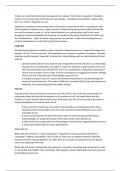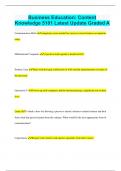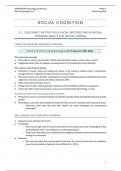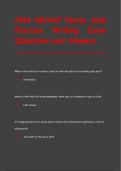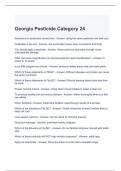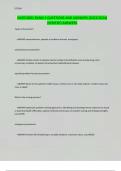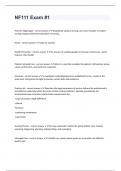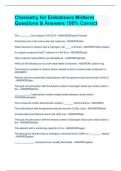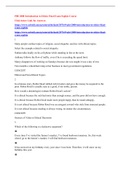Samenvatting
Summary A* quality notes on Augustine and Human Nature for RS OCR A-level
- Vak
- Instelling
Extremely high-detailed and comprehensive A* philosophy notes including not only the content but also a whole range of relevant scholars, responses and pros and cons of the different arguments. Everything you would need for this topic!
[Meer zien]
